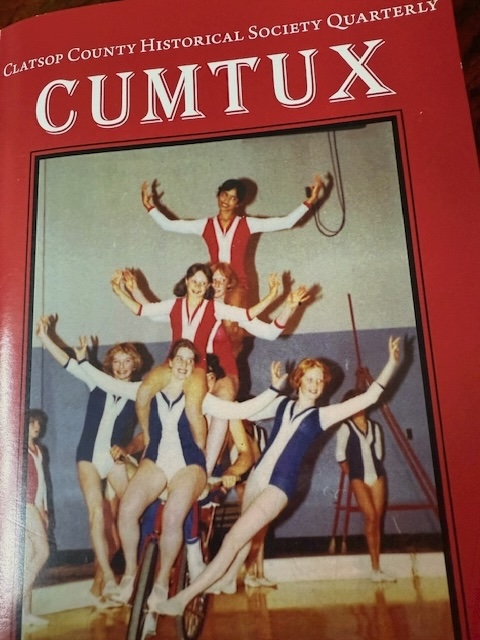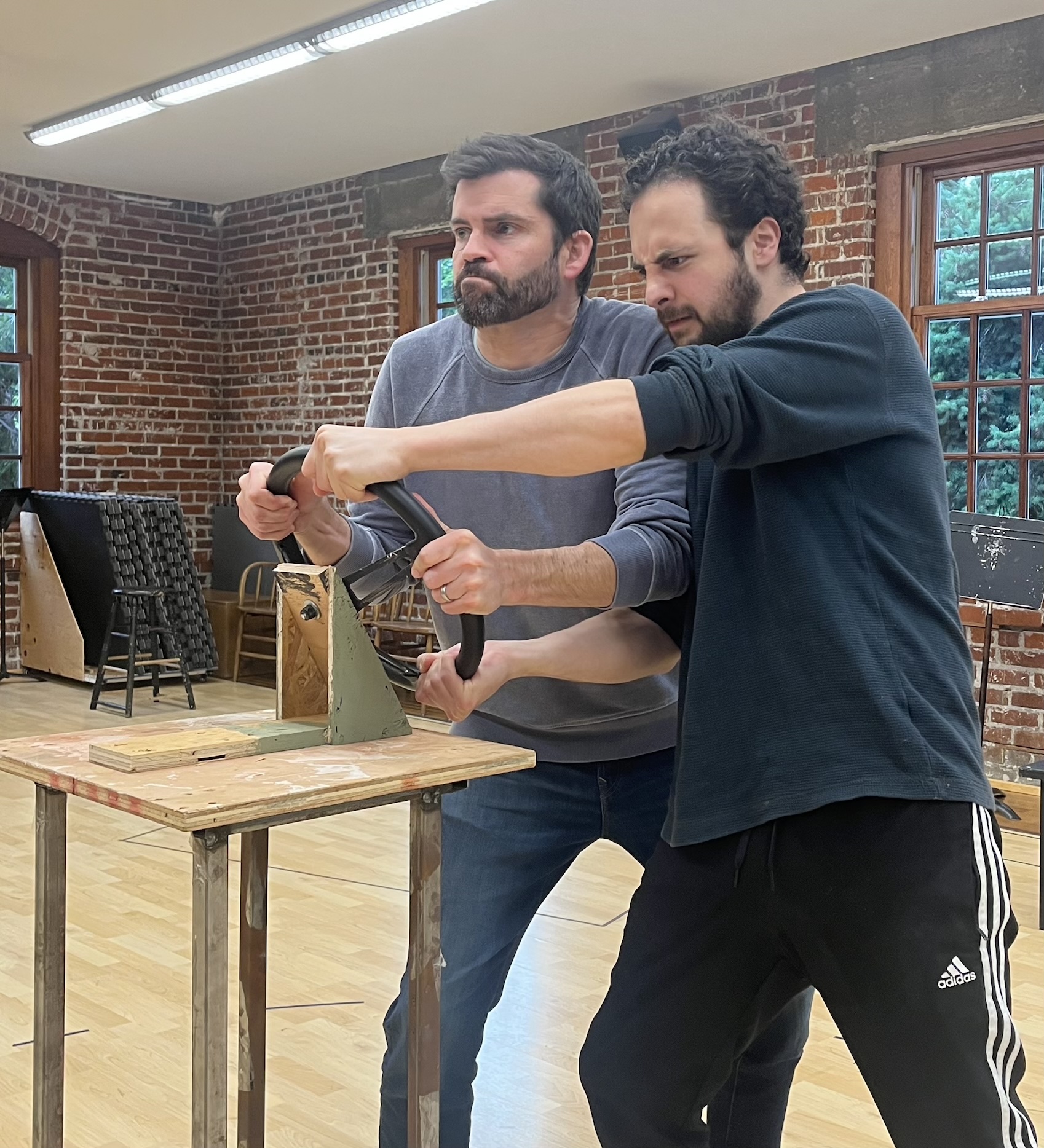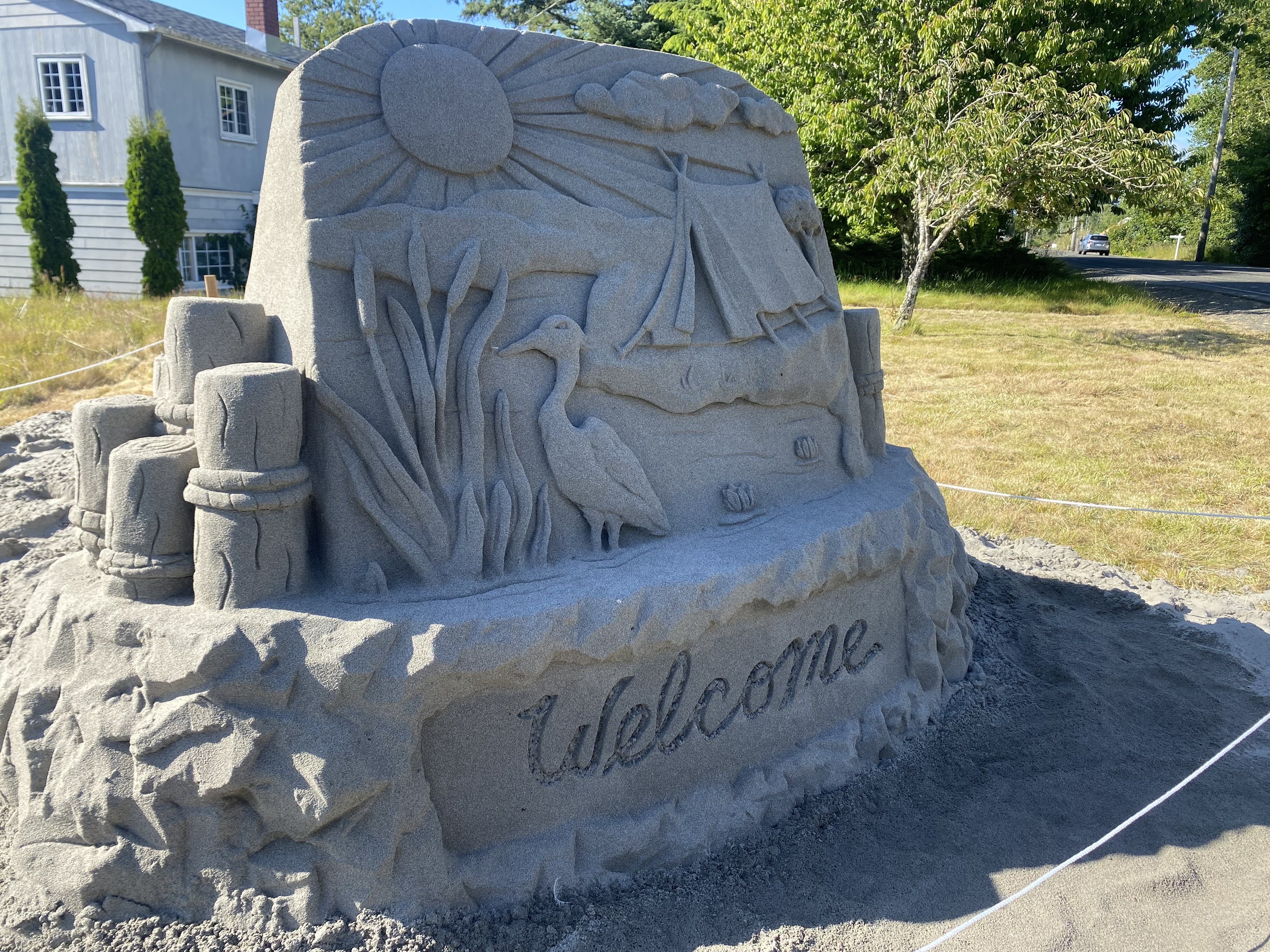War games of ‘The Mosquito Bowl’
Published 9:00 am Wednesday, October 19, 2022

- Buzz Bissinger, author of “The Mosquito Bowl,” in front of Willapa Bay, where he and wife Lisa Smith live.
“The Mosquito Bowl” is a penetrating story of war, a story exploring great loss and heroism, a sad tale of bravery and sacrifice.
Trending
Buzz Bissinger is a local treasure, a Pulitzer Prize-winning author whose reach extends deep into the literary world. He is the husband and partner of the peninsula’s Lisa Smith, KMUN devotee and patron of regional arts.
Most renowned as the author of “Friday Night Lights,” Bissinger’s latest book touches on the depths of World War II – with all the impact of a lead projectile fired from the barrel of an American M15 rifle.
A friend and veteran of numerous conflicts confided his belief that only combat veterans can fully understand the searing impact of war, the reality of hand-to-hand combat and near-death experiences associated with full-frontal assault. He suggested that such horrors can never be fully expressed by the written word. One would hate to challenge such a presumption.
Trending
The experience of combat cannot compare with a literary or cinematic representation of it. Bissinger comes as close as an author can. In his 461-page book with the subtitle, “A Game of Life and Death in World War II,” he exposes the emotions and fears of a foot soldier. Readers bivouac with him through clinging muck, drenching rain, festering insects and the dehydrating heat of the jungle.
Here was the onslaught of island-hopping in a war that left tens of millions dead. Such universal devastation stood alone in any war in human history, even ahead of the unforgivable slaughter of millions in the Great War, only two decades earlier.
Bissinger’s research is impressive. His notes on sources, alone, extend for 75 pages. He opens this story 70 years ago, yet one can somehow imagine these soldiers and their families sitting here today, this afternoon, in his living room.
Imagine the stories of survivors still tattooed by those haunting memories. A small number of the combatants still survive, but so few as years gallop by and experiences become more remote. Bissinger keeps those memories alive with illuminating details of how these people were impacted by such a major calamity. As to the pain borne by so many of those affected by this war, Bissinger’s empathic portrayal creates intense, page-turning reflections.
He brings those lives to light, as if he too bolted out of the steel-clad cage of the unpopular landing craft, also called a Higgin’s boat. Veterans coined it as “a slow moving target.” The landing craft shuffled soldiers across shallow atolls and onto beaches entrenched with machine-gunners, land mines, impenetrable concrete and barbed-wire obstacles. The half-tank, half-boat had a major impact on the war from the Pacific Theater to the D-Day landing.
The core of his characters are football players, stars from prestigious colleges, from Wisconsin to Notre Dame to Brown. They collide – after sacrificing their athletic careers – on a makeshift football field in a one day free-for-all of athleticism.
Bissinger pivots their athletic achievements into a hit-hard-without-pads collision in a football game between the 4th and 29th regiments of the 6th Division of the U.S. Marine Corps. “War Dogs,” numbering 65, played in the Mosquito Bowl on Christmas Eve 1944, on the just-besieged island of Guadalcanal.
As it turned out, this was a modern-day clash of titans. But the deadly concussions happened in the game of life and death during the subsequent assault in the bloodiest combat of the Pacific War – Okinawa. These footballers, totaling 15, sacrificed their lives, yet these athletes competed furiously.
Is this not a catharsis or a pound-your-fist-against-a-wall moment? Or perhaps a deep sustaining breath amidst the most savage of conflicts in modern times? Bissinger lets us decide.
World War I was the war said “to end all wars.” But 20 years later, war was back. Few of these students knew what was ahead. How quickly they discovered. Those that survived, never forgot. Bissinger, too, won’t let us forget.
Together, we surmount Sugar Loaf or Horseshoe or Half Moon, steep hills heavily defended and never forgotten by the American survivors of deadly fire. Never forgotten for the staggering losses, for the hundreds of strategic footholds fraught with a determined and well equipped enemy. Japanese soldiers dug into caves, underground tunnels and constructed steel and cement encased pill boxes and mortar pits.
They were a heavily fortified enemy prepared to fight to the death, which tens of thousands did. Ultimately, casualties tumbled into the millions, including an unimaginable slew of civilians.
As in the Mosquito Bowl itself — as with those extraordinary American sailors and soldiers and pilots — the Japanese were competent fighters. Driven by determination and love of empire, Japanese soldiers were not kind to the combatants, nor to the prisoners. Nothing was kind here. Thousands of American soldiers found out the same secret young soldiers everywhere discover within hours of actual combat. War is hell.
Bissinger brings the Pacific Theater home in this masterpiece of a book, written by an indomitable author who has never been afraid to confront truth in the written word.
When we find ourselves thrust into a recreation of 70-year-old combat, we can feel the cloak of smoke and destitution, that in-your-face pallor of fear and death. Here, we are exposed to a full-frontal catastrophe in this play-by-play assault of Okinawa.
When all is said and done, Bissinger remains a brilliant author, a keen observer and chronicler of times. Here is the ancient and ongoing nature of men and war. Few have written it as well.
By Buzz Bissinger
HarperCollins – 431 pp – available online and at bookstores
www.buzzbissinger.com









